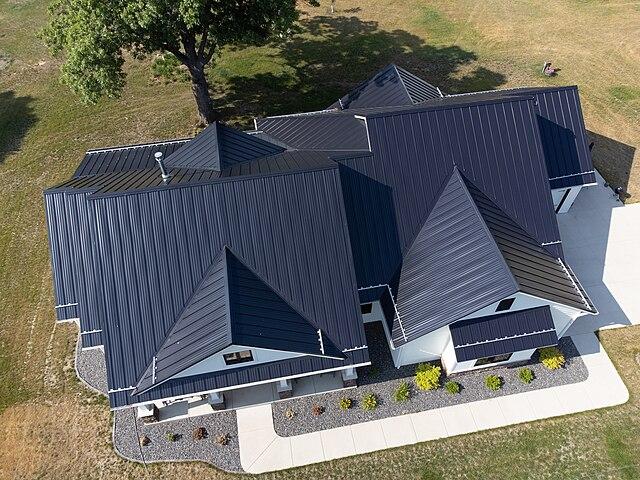The choice of roofing material is a critical decision for homeowners and builders. When considering a metal roof, one essential factor to understand is the metal roof’s weight per square foot. In this article, we’ll delve into the importance of this factor, its implications, and how to calculate it.

Understanding Metal Roof Weight Per Square Foot
Why Does It Matter?
The weight of a roofing material per square foot is a crucial consideration for several reasons:
- Structural Integrity: The weight of your roof directly impacts the structural integrity of your home. If your roof is too heavy for your structure, it can lead to structural damage over time.
- Installation Requirements: Different roofing materials require varying installation methods and structural support. Knowing the weight per square foot helps determine if your existing structure can support the chosen material.
- Cost: Heavier roofing materials may require additional structural enhancements, adding to the overall cost of the project.
Average Weight of Metal Roof per Square Foot
Understanding the Numbers
The weight of a metal roof per square foot can vary depending on the type of metal and its thickness. Here are some average figures to provide you with a general idea:
- Steel Roofing: Steel roofing, a common choice for residential applications, typically weighs between 1.5 to 3 pounds per square foot.
- Aluminum Roofing: Aluminum roofing is lightweight and usually weighs around 0.5 to 1.5 pounds per square foot.
- Copper Roofing: Copper is heavier than steel and aluminum, with an average weight of 1.5 to 2.5 pounds per square foot.
- Zinc Roofing: Zinc roofs can weigh between 1.5 to 2.5 pounds per square foot.
- Tin Roofing: Traditional tin roofing has a weight of approximately 1.5 to 2 pounds per square foot.
Calculating the Weight of Your Metal Roof
How to Determine Your Roof’s Weight
To calculate the weight of your metal roof, follow these steps:
- Determine the Area: Measure the area of your roof in square feet. You can do this by measuring the length and width of each section of your roof and then adding these values together.
- Identify the Metal Type and Thickness: Find out the type of metal and its thickness that will be used for your roof. These specifications will determine the weight per square foot.
- Multiply the Area by the Weight: Multiply the area of your roof by the weight per square foot of your chosen metal. This will give you the total weight of your roof.
Implications of Metal Roof Weight
What to Consider
- Structural Considerations: Ensure that your home’s structure can support the weight of your chosen metal roof. If not, you may need to reinforce the structure.
- Installation Requirements: Some metal roofs may require additional support, such as purlins or structural decking, to distribute the weight evenly and meet local building codes.
- Cost: The weight of the metal roof can impact the overall project cost. Heavier materials may necessitate more structural work and incur higher expenses.
Benefits of a Lighter Metal Roof
Why Choose a Lighter Option
- Less Structural Modification: Lighter metal roofs are often easier to install on existing structures, as they require fewer structural modifications.
- Cost Savings: Lower weight can translate to lower project costs, making lightweight metal roofs an attractive option for budget-conscious homeowners.
Conclusion
Understanding the weight of a metal roof per square foot is crucial when choosing roofing materials for your home or building. It affects structural integrity, installation requirements, and overall project costs. By calculating the weight of your chosen metal and considering the implications, you can make an informed decision that ensures the safety and durability of your roofing system. Whether you opt for steel, aluminum, copper, zinc, or tin roofing, knowing the weight per square foot is a critical step in the selection process.



Leave a Reply